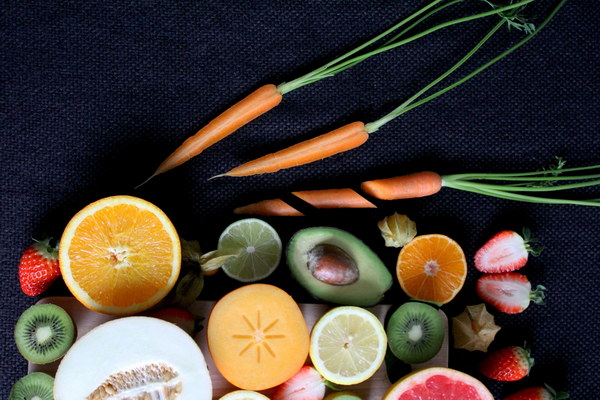Does Eating Pears Help to Nourish the Kidneys Unveiling the Truth
In the realm of traditional Chinese medicine, there is a common belief that eating pears can help to nourish the kidneys. This notion has been passed down through generations, and many people still follow this practice today. But does this claim hold any scientific merit? In this article, we will explore the truth behind the idea of eating pears to nourish the kidneys.

First, let's delve into the traditional Chinese medicine perspective on the kidney and its importance. According to TCM, the kidneys are one of the vital organs in the body, responsible for storing essence, producing sperm, and maintaining a balance of yin and yang. A healthy kidney is essential for overall well-being, and many TCM practitioners believe that certain foods, including pears, can help to nourish and strengthen the kidneys.
Pears are a popular fruit in Chinese cuisine, and they are often consumed for their health benefits. Pears are known to be cooling in nature, which aligns with the TCM concept of balancing yin and yang. Additionally, pears are rich in dietary fiber, vitamins, and minerals, which can contribute to overall health.
From a nutritional standpoint, pears do contain some compounds that may have a positive impact on kidney health. For instance, pears are a good source of vitamin C, which can help to reduce the risk of kidney stones. Moreover, the high water content in pears can help to flush out toxins from the kidneys and support proper kidney function.
However, it is important to note that the scientific evidence supporting the notion that eating pears can nourish the kidneys is limited. While some studies have suggested that certain nutrients found in pears may have a positive effect on kidney health, more research is needed to establish a definitive link between pear consumption and kidney nourishment.
One study published in the Journal of Ethnopharmacology found that the polyphenolic compounds in pears have antioxidant properties that may protect kidney cells from oxidative stress. Another study, published in the Journal of Food Science, suggested that consuming pears may help to improve kidney function in patients with chronic kidney disease.
Despite these findings, it is essential to consider that the effects of eating pears on kidney health are likely to be subtle and may vary from person to person. Moreover, kidney health is influenced by a multitude of factors, including genetics, lifestyle, and diet.
In conclusion, while there is some evidence to suggest that eating pears may have a positive impact on kidney health, it is not a definitive cure for kidney-related issues. Incorporating pears into a balanced diet, along with other kidney-friendly foods, can be beneficial for overall health. However, if you have specific concerns about your kidney health, it is best to consult with a healthcare professional or a TCM practitioner for personalized advice.
In the end, the idea of eating pears to nourish the kidneys may be rooted in traditional wisdom, but it is important to approach the topic with a critical mindset. By seeking a balance between traditional practices and scientific evidence, we can better understand the role of pears in promoting kidney health and make informed decisions about our diet.









